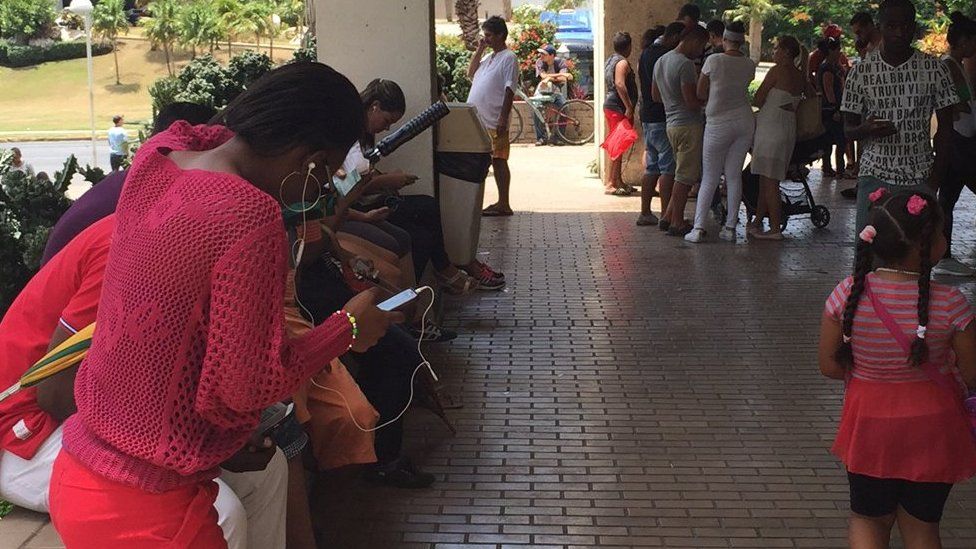Cuba internet access still severely restricted
- Published

Internet access and content remain severely restricted in Cuba, with only a very small percentage of Cubans, about 5%, enjoying web access at home.
All such internet services are provided by state-owned telecoms company Etecsa.
Outside the home, the situation has changed in the past year with the appearance of more than 40 government approved wi-fi hotspots around the capital, Havana, and other major cities.
There, Cubans can enjoy largely unfettered internet access and a higher speed connection than most have been used to.
Entire families and crowds of young people armed with smartphones, tablets and laptops can be seen at all hours of the day and night hovering around the wi-fi hotspots to get in touch with family and friends in Florida and other parts of the world.
Access to social media sites such as Facebook and Twitter is available at the hotspots - but opposition sites are blocked.
Although the price of wi-fi access in public places has recently dropped to $2.25 (£1.56) an hour, it is still prohibitive for the vast majority of Cubans.
Etecsa also offers limited email access from mobile phones.
Google deal
Despite these recent improvements, the island still has some of the world's worst connectivity.
That's why the vast majority of Cubans rely on their weekly dose of "Paquete Semanal", an offline selection of material compiled by unidentified curators and delivered every week to subscribers via an unofficial network of distributors using portable hard drives.
Dissidents accuse the government of not providing affordable home internet access for political reasons.
The Cuban government blames the US for the poor state of telecoms infrastructure, which it says is caused by the American economic embargo imposed in the 1960s.
That could change now that US President Barack Obama has announced a deal involving Google, which would extend internet access to a much larger number of Cubans.
Nevertheless, even if internet access is made more widely available, the Cuban authorities are likely to keep tight control of access to sites they consider contentious.
- Published21 March 2016
- Published20 March 2016
- Published19 March 2016
- Published20 March 2016
- Published20 March 2016